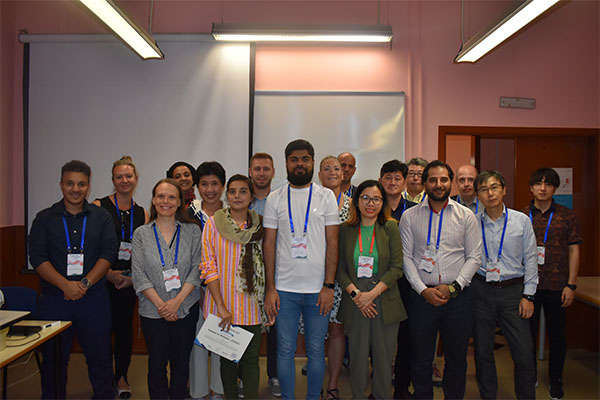Stay Updated with Academic Conference Schedules

1. Use Dedicated Conference Platforms
There are several platforms and websites that specialize in listing academic conferences. Websites like academic.net provide comprehensive schedules for upcoming events across various fields of study. These platforms allow you to filter conferences by discipline, location, and date, helping you find the most relevant events for your interests.
2. Sign Up for Conference Alerts
Many academic conference organizers offer email alerts or newsletters to keep potential attendees updated. By signing up for these alerts, you'll receive notifications about new conferences, deadlines for submission, and schedule updates. This ensures that you won't miss out on any important conferences in your area of expertise.
3. Consult Your Professional Network
Your colleagues, mentors, and professional associations are valuable resources for learning about upcoming academic conferences. Often, events are shared within academic communities through newsletters, email lists, or social media groups. Networking with others in your field can help you stay informed about conferences that may not be widely advertised online.
4. Monitor University and Research Institution Announcements
Universities and research institutions frequently host or partner with academic conferences. These institutions often provide information about conferences on their websites or through event calendars. By regularly checking their announcements, you can stay ahead of the curve on upcoming events in your area of interest.
5. Utilize Social Media and Professional Networks
Social media platforms, especially LinkedIn, Twitter, and Facebook, are powerful tools for staying connected with academic conferences. Many conferences create official social media pages or groups to share important information and updates. By following these pages and joining relevant groups, you can stay informed about event schedules, speaker announcements, and schedule changes.
6. Plan Early and Set Reminders
Once you've found the conferences that align with your research interests or professional goals, make sure to mark them on your calendar. Set reminders for important deadlines, such as registration and abstract submission dates, to ensure you don’t miss any crucial milestones. Early planning allows you to arrange travel, accommodations, and prepare your materials well in advance.
7. Access Detailed Event Schedules
After registering for a conference, make sure to access the detailed event schedule as soon as it's available. This will include session times, speakers, panel discussions, workshops, and social events. Familiarizing yourself with the schedule helps you make the most of the conference, ensuring that you don't miss any important talks or networking opportunities.
Staying updated with academic conference schedules is a key part of maximizing your participation and ensuring that you never miss out on valuable opportunities. Whether you're attending for networking, professional development, or to share your own research, knowing when and where the conferences are taking place allows you to plan ahead and make the most of your time. For a comprehensive list of upcoming conferences, visit academic.net.
